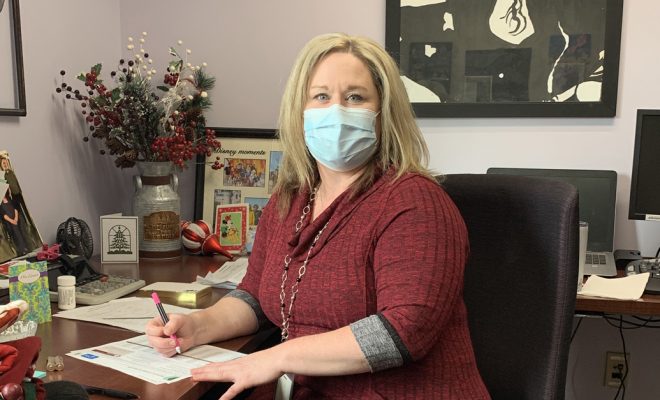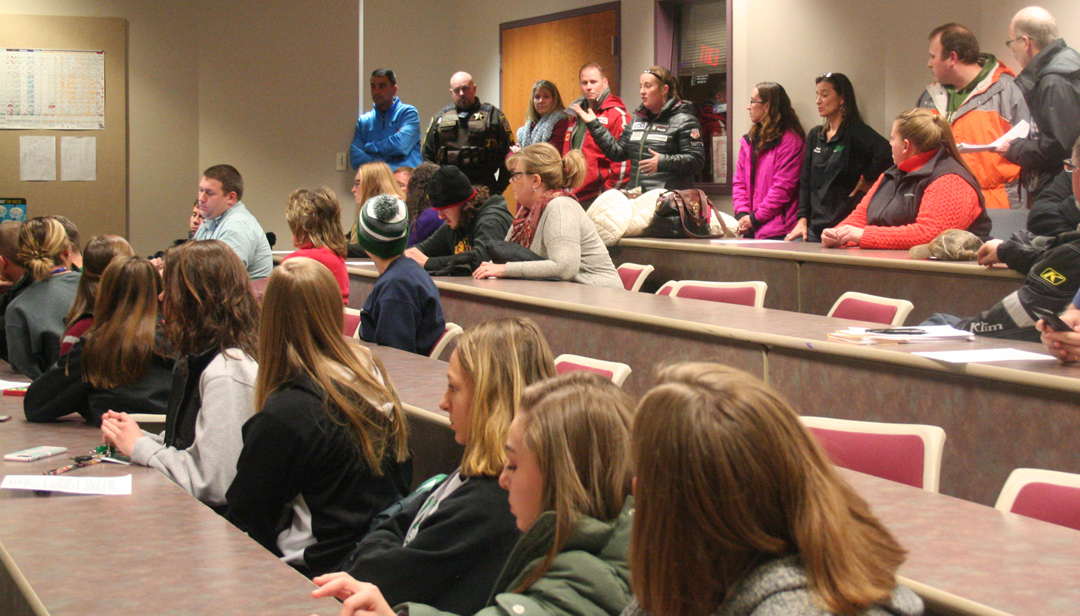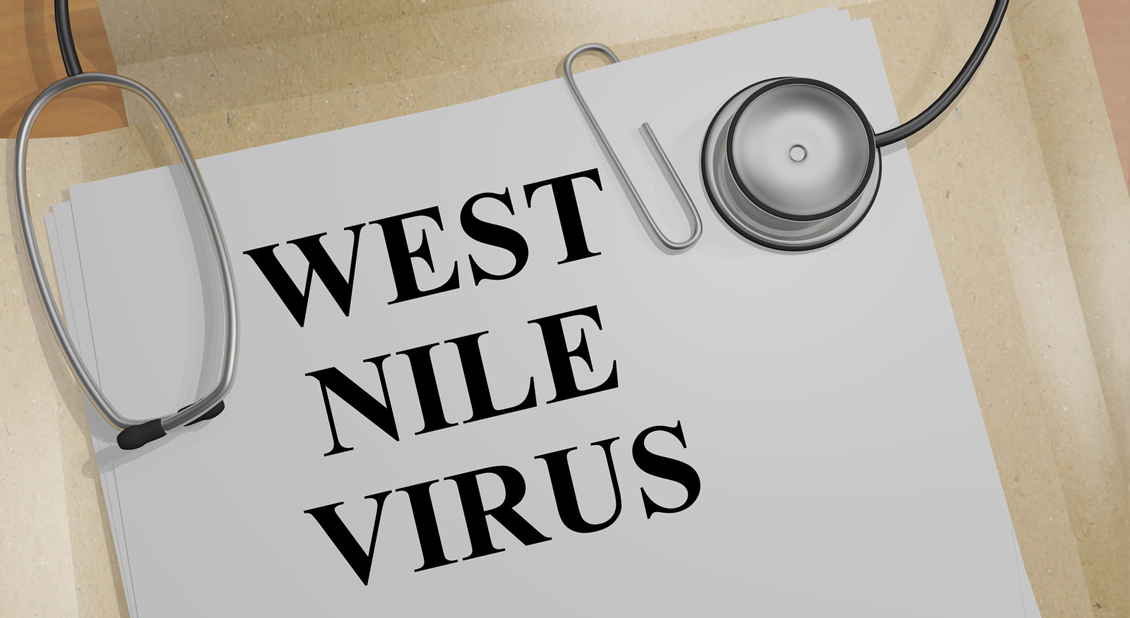Conlon leads OCHD through COVID challenges

Vaccine provides light at the end of the tunnel
By Eileen Persike
Editor
CORRECTION: A previous version of this story indicated that Phase 1b vaccinations would begin later this month. In fact, Phase 1a vaccines are continuing, with assisted living facilities and non-healthcare frontline workers, such as law enforcement and fire department workers, expected to begin later this month. We regret the error.
It’s a new year; COVID-19 vaccine is flowing into the state. Oneida County Health Department Director Linda Conlon can see light at the end of the tunnel.
“I’ve had many, many challenges over the years, but COVID is career-defining and a life challenge for any public health official and likely everybody in public health,” Conlon said. “It has challenged us beyond what we have truly ever faced before. I see light and hope with the vaccination.”
Public health has been Conlon’s passion since nursing school. Twenty-five years in the field has not dampened her enthusiasm, nor has COVID-19.
“It is truly my calling, to prevent illness, prevent diseases, work in the community, work with the community, serve the people that I live with, to make it the best place it can be,” Conlon said. “I have spent my entire career really just working to improve the health of our community and to work with partners within our community and make it a better place to live and make it a better place to attract people to come here because that’s an issue as well.”
Though working quietly for many years by providing access to health care, educating moms about breast feeding, advocating for tobacco free legislation, and inspecting restaurants – just to name a few – the work of public health officials became better known in 2020 when the novel coronavirus SARS-CoV-2 entered the United States.
Monitoring and following up with communicable disease outbreaks, however, is not new for the Oneida County Health Department, Conlon said, but nothing before has risen to the level of COVID-19.
“We are in a pandemic. This is a world-wide new virus and that has really catapulted us into the limelight and we are doing everything we can to try to alleviate some of the deaths and the morbidity, the long-term health issues that people have had,” Conlon said. “Have mistakes been made? Of course, this is a new virus, a new disease; of course [the national public health community] have learned along the way and changed some things.”
Conlon said she understands that balancing people’s safety and health with the needs of businesses has resulted in sacrifices for everyone.
“When we talk about the sacrifices that all of us have made, I think people forget that public health staff that are making the recommendations are making the same sacrifices,” Conlon said.
“We’re not doing this because we want to harm people; we’re doing it because we want to protect them. And we want to protect everyone, not just the people who are healthy. We all have sacrificed and some of us have sacrificed a lot in this process and have lost a lot – parents, friends. We’re all going through this together.”
VACCINE
The recently approved vaccines are Conlon’s light and hope. “Plus 90 percent effective is unbelievable,” she noted.
The health department has received a supply of the Moderna vaccine, the one that does not require super cold storage. Last week the department began providing vaccines to Phase 1a frontline healthcare personnel that are not affiliated with a health care system, hospital or long-term care facility. That group includes dentists, chiropractors, EMS and the like. With the arrival of the vaccines, the role of Conlon’s team is to organize and to assure that people get vaccinated, as well as providing the vaccinations.
“I’m having conversations with all three of our hospitals, all of the pharmacies that have signed up to do vaccination, with our long-term care, with schools and figuring out how we are going to vaccinate [Phase] 1a because there are a lot of people who are unaffiliated with a hospital,” Conlon explained. “As the other vaccinators in the county are approved and get vaccine, then we have discussions – who are you going to vaccinate? How many vaccines did you get this week? You take this group, or you take this area and we’ll take this group or this area. We just need to work together to get the vaccine into arms.”
During a briefing Thursday, Wisconsin Department of Health Services deputy Secretary Julie Willems Van Dijk said the demand for vaccine is greater than the supply.
“We are asking providers not to keep vaccine on the shelf,” she said.
Willems Van Dijk also reported the state will move on to Phase 1b in two weeks, beginning the week of Jan. 25. That phase includes vaccinating individuals in assisted living facilities and non-healthcare frontline workers.
Each phase will include larger groups of people, and planning how to vaccinate everyone in Oneida County is underway.
“We have had mass vaccination plans in our department for a long time,” Conlon said. “We have places identified where we can do a mass clinic and we’ve got positions and volunteers identified who can help us. It’s just a matter of when, at what point in time is the state saying we are ready to move into the next phase.”
Hopefully, she added, enough people get the vaccination “so we can get our lives back on track.”
Leave a reply
You must be logged in to post a comment.





